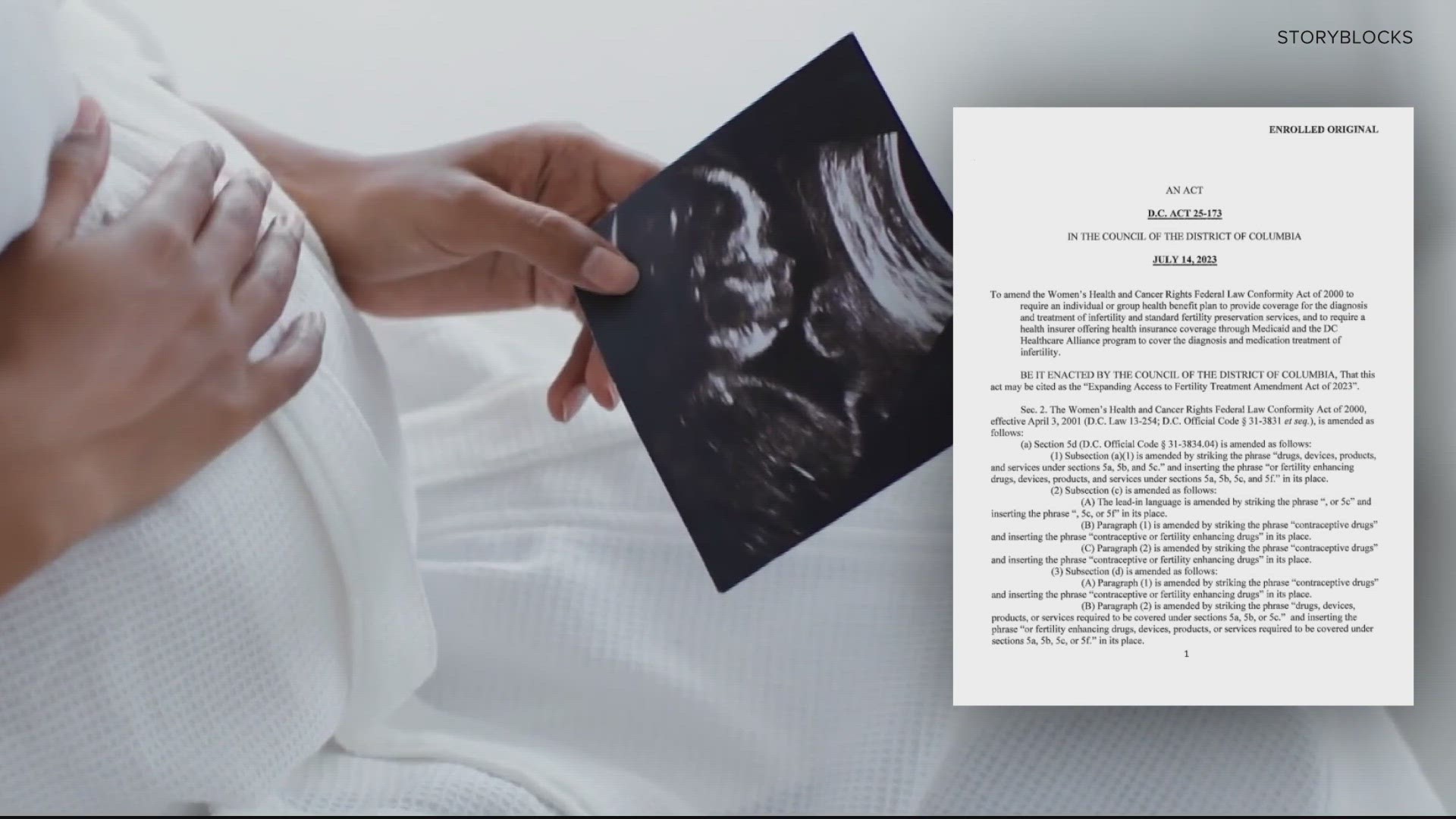WASHINGTON — A recent change to D.C. law is getting a lot of attention for what it means for families, parents, and businesses.
THE QUESTION:
Will IVF be covered by insurance under a new D.C. law?
THE SOURCES:
THE ANSWER:
Yes, a recently-passed bill in D.C. requires insurance providers to cover multiple rounds of IVF as well as the diagnosis and treatment of infertility.
WHAT WE FOUND:
Earlier this summer, DC Council approved legislation expanding access to fertility treatment. Now, Congress and the mayor have signed off as well.
Bill 25-34 will require individual health plans, group plans, or health insurers offering coverage through Medicaid and the DC Healthcare Alliance program to “provide coverage for the diagnosis and treatment of infertility.”
The NIH says about 9% of men and 11% of women of reproductive age have experienced prolonged difficulty conceiving or carrying a pregnancy to term.
The bill’s passage means starting in 2024, patients using DC Healthcare Alliance or Medicaid will have coverage for appropriate specialists and medications—and have three rounds of IVF paid for, too. Then in 2025, those same guaranteed benefits will extend to people insured through jobs located in D.C., or DC Health Link–the District’s health exchange program.
In vitro fertilization treatments are particularly cost-prohibitive: the NIH reports IVF costs about 20-25 thousand dollars per round, and often takes several rounds to work.
DC Councilmember Christina Henderson, chair of the health committee and co-sponsor of the bill, cited those costs as a reason for the policy change. She also shared CDC analysis finding women of color are less likely to seek support dealing with infertility–so supporters say expanding access makes fertility treatment more equitable, too.
According the Resolve, the National Infertility Association, D.C. joins 21 states with some kind of law ensuring fertility coverage—including West Virginia and Maryland, where the law is similar to the new rules in D.C.
Watch Next: Maternal & Infant Health Summit happening in DC

